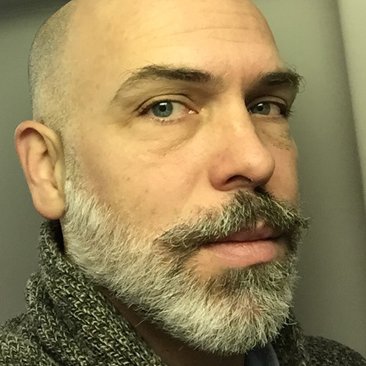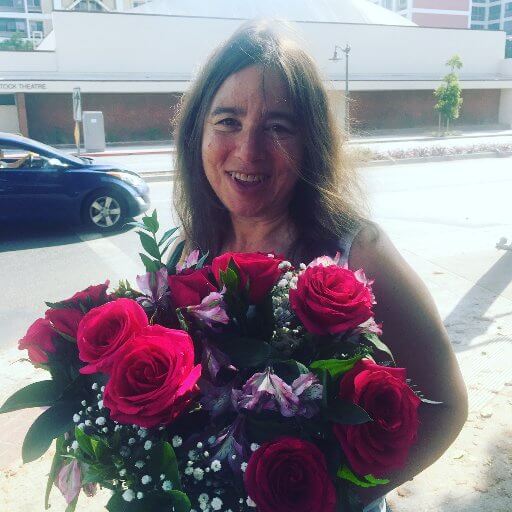Here is a hopeful story involving censorship of the Israel/Palestine issue in a leading New York publication. It’s got some dark twists and turns; but it comes right in the end.
On Monday at the Whitney museum, Sarah Schulman read an essay called “Open Casket” about the free-speech controversy unfolding at the museum’s biennial over the painting by Dana Schutz, a white artist, of the iconic 1955 photograph of Emmett Till dead and beaten in an open casket. You can read Schulman’s essay here. Schulman was very critical of corporatist institutions, including museums; and said that the claim of free speech “is regularly manipulated and used as a trick to hide the deliberate power grabs of White Supremacy.”
At the end of the statement, she swung to the suppression of Students for Justice in Palestine in New York:
I want to end by acknowledging one significant progressive community that is not confused about Free Speech, and that is the Palestine Solidarity Movement. There is an internationally coordinated campaign to claim that criticism of the Israeli government is inherently anti-Semitic and therefore qualifies as “Hate Speech”—thereby counting on the dismantling of the collective support for “Free Speech” to silence The Boycott, Divestment, Sanctions movement. Using this logic, Fordham University, here in New York, has just forbidden Students for Justice in Palestine from forming a chapter on their campus—claiming that being for Palestinian liberation is “hate speech” and should be destroyed. If we allow our confusions about Corporate and Public Opinion and Fake News to destroy our demand for open expression, the Palestine Solidarity Movement will be our next casualty. The people who ultimately suffer from the repression of painful Opinion are not the elite but, in fact, the powerless.
After the event, Schulman was approached by the poet Adam Fitzgerald. Fitzgerald works as an editor at Literary Hub, a subsidiary of Grove Atlantic. He wanted to publish the statement; he has apparently never had a piece rejected.

Schulman agreed to have her piece run in Literary Hub, but the next day the editor-in-chief, Jonny Diamond, said that LitHub would only run it if the last paragraph about Palestine was cut. Schulman sought a discussion of the issue; things broke down; and she announced on Facebook that Adam Fitzgerald had that morning
regretfully informed me that-against his will- his boss, Jonny Diamond, insisted on cutting the final paragraph of the piece because it expresses solidarity with Palestine. When I asked Diamond for a conversation he cancelled the publication.
To eliminate the Palestine paragraph would not only eliminate the essay’s conclusion, but would be the height of irony for a nuanced, piece about the changing meaning of “free speech.” Is there anyone out there who would like to publish the text of this ten minute talk in its entirety?
Yes: ArtsEverywhere, a Canadian publication, agreed to publish the piece intact. It came out on Wednesday there. ArtsEverywhere offered a headnote saying that “LitHub declined to publish the text after she [Schulman] refused to delete the concluding paragraph regarding the Palestinian Solidarity Movement.”

Jonny Diamond explained his choices in an email exchange with me, and said he wasn’t censoring politics:
In treating the text of the speech as an essay (perhaps my first mistake) the last paragraph seemed non-sequitur and tacked on to what was largely a piece about Emmett Till, Dana Schutz, hate speech vs. freedom of speech, and anti-Black racism in the US.
I would argue that an editor’s issue with the structure of an essay doesn’t qualify as censorship. In this case, the fault is entirely mine as far as communication goes—it was rushed and we were already over our normal weekly number of features (around 30).
But by then the matter had blown up on social media. And the plot “sickens,” as Schulman put it. Yesterday Fitzgerald posted a statement on Facebook:
This morning I was fired from all features and interviews at Literary Hub for defending Sarah Schulman’s piece from being censored over a paragraph she wrote about Palestine, an essay in fact that confronts Censorship in response to the Whitney’s forum on Open Casket organized by Claudia Rankine. There’s much more to this story & a few of us would like to contact press and media in the literary and arts community. Any ideas?
Diamond had sent Fitzgerald an email saying that the Schulman situation “went just about as badly as can be imagined… it doesn’t particularly seem like you have Lit Hub’s back out there.” He said that Fitzgerald should focus on commissioning poems for LitHub, “but the interviews and features aren’t working, and this whole experience left a bad feeling for everyone on staff.” He noted there were calls from “everyone here” to end the relationship entirely. And concluded: “This isn’t debatable, I’m afraid.”
It turns out that the firing was debatable after all.
Fitzgerald broke the good news last night:
Thanks to the support of friends and advocates, I’ve been asked to resume my full duties at Literary Hub. Sarah, my editor and myself are going to meet to talk about differences openly. This is a page straight out of #ConflictisNotAbuse, Sarah’s most recent book.Read it! It literally helped in realtime.
Two quick takes: 1. We need to read and promote work (like Sarah’s essay) that distinguishes the rights and powers of free speech, censorship, representation and responsibility, within civic and political space. Protesting violence is not censorship. 2. The ability to move towards a resolution here reflects advantages—two queer white writers and their networks of support. As I said to Sarah, what would have happened if we didn’t have these resources? (Historical/ontological whiteness; interpersonal/social capital.) Her response: This is why we help others in turn.
One report had it that Diamond was overruled by Morgan Entrekin, the publisher at Grove Atlantic, citing Grove Press’s tradition of publishing heretical works, such as the unexpurgated version of Lady Chatterley’s Lover (in 1959 nearly 30 years after Lawrence’s death).

Diamond said that is not the case. “Nobody likes to be called out on social media,” he noted (too true); but he had chosen to reinstate Fitzgerald.
It was my decision, after a long and fruitful conversation with Adam.
All’s well that ends well, I said; but this does seem to be an impulse toward suppression of Palestinian advocacy by a leading literary institution. Diamond differed:
We’ve happily amplified Palestinian voices in the past (see links below); and will do so in the future. There is absolutely nothing political about this decision. Further to that, I invited Ms. Schulman to write/develop a longer, full feature on the Palestine Solidarity Movement, as I do think the moral issues around divestment and boycotting are more urgent now than ever, and warrant more than a final mention in a text largely focused on the controversy around “Open Casket.”
Here are the links Diamond provided: Adania Shibli on Writing Palestine from the Inside, in February 2017; this excerpt about Qalandiya Checkpoint, from Ben Ehrenreich’s book The Way to the Spring, a year ago; and this excerpt of Atef Abu Saif’s book about life in Gaza, The Drone Eats With Me, from last year.
I find it difficult to believe that a decision about Israel/BDS could absolutely not be political; and yet it appears that this has been a productive encounter. Neither Fitzgerald nor Schulman folded; and they came through. Diamond is an open and accountable person. The New York Theatre Workshop’s censorship of My Name Is Rachel Corrie in 2006, with the usual confusion and flaring narratives, resulted in that institution staging many excellent works. LitHub is sure to be strengthened by this experience.
Sarah Schulman’s literary reputation continues to grow due to her forthrightness about Palestine and about her treatment by mainstream publications. You can read, for instance, about the tortuous path at the New York Times to publication of Schulman’s famous Pinkwashing piece in 2011 here, because she dared to tell a story most writers would shut up about. She then led a tour to Israel/Palestine in solidarity with the BDS movement, and published a book about that.
And yes, you can order Schulman’s latest book, about resolving political differences without resorting to victim/perpetrator assignments: Conflict Is Not Abuse: Overstating Harm, Community Responsibility and the Duty of Repair.



It’s 2017 and this stupid shit is still happening.
Diamond’s actions look exactly like standard Israeli actions in America, censorship followed by bullying and firing. It walks and quacks exactly like that duck. So I don’t believe Diamond. Possibly somewhat in his favor, he might have been just following orders. But it appears he and his boss were surprised at how effectively they were shamed.
Totalitarians always worry about the artists, because so many of them simply cannot be bought. Their inner beings don’t work that way.
Thank you, Sarah and Adam.
“Don’t yell ‘fire!’ in a crowded theatre.” Just whisper it, assuming it’s true? Complicity. Status quo–isn’t that the theatre itself? Audience changes with each show….
Thank you for sharing with us what happens in the publication industry. Sarah, you have perciverance, which I am starting to see more of in today’s society. Palestinians will always have their voice heard because of people like you.
I love this. This is why I check this site daily.